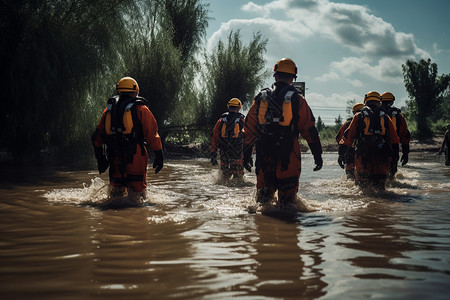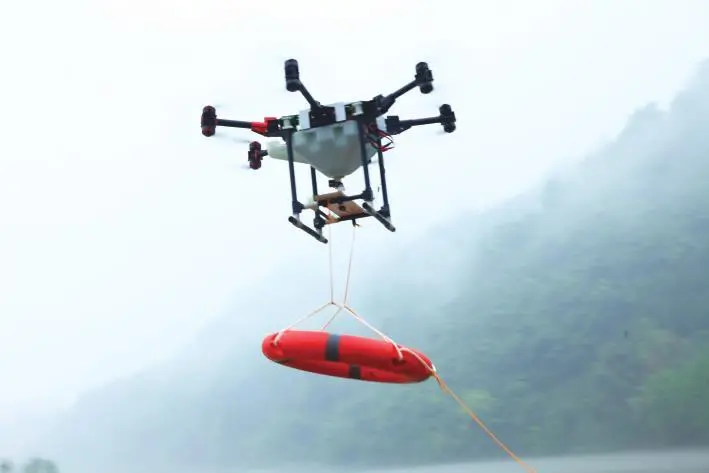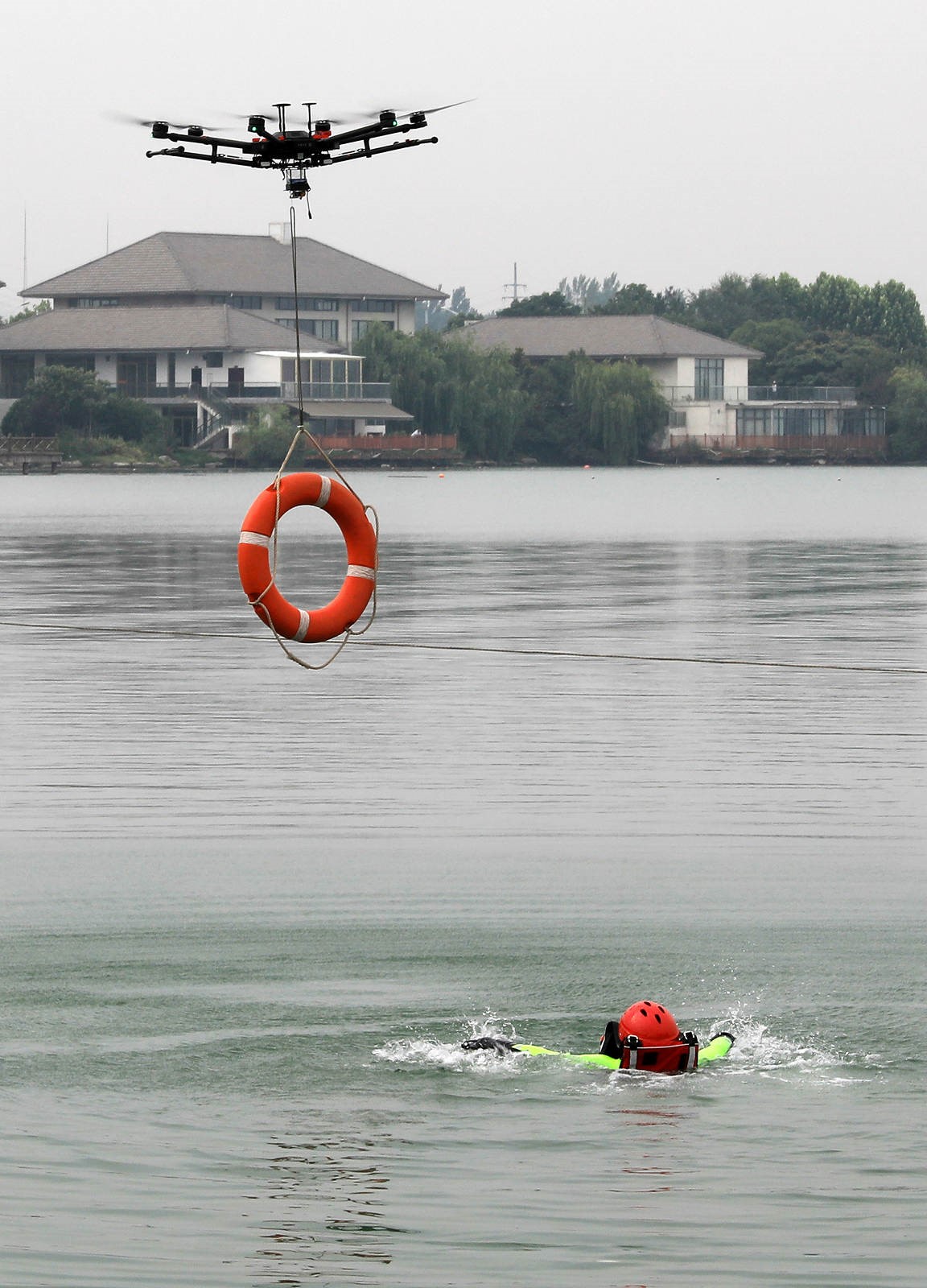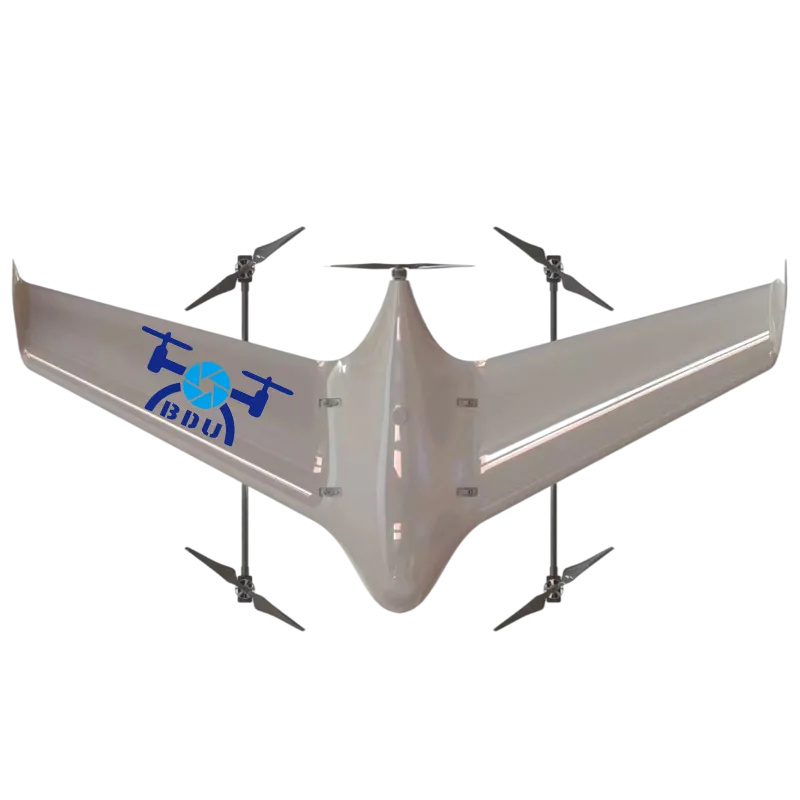The Role of Drones in Flood Relief: A Game-Changer for Efficiency and Safety
In the wake of flood disasters, drones have emerged as indispensable tools, offering rapid, precise, and all-weather capabilities that significantly enhance flood relief and rescue operations. Their ability to provide high-definition images and videos from disaster sites, coupled with advanced search, rescue, and delivery functions, make drones a vital asset in modern disaster response.

Aerial Surveillance
Equipped with ultra-clear gimbal cameras and infrared thermal imaging cameras, drones can conduct continuous monitoring, early warning, and tracking of flood-affected areas regardless of weather conditions. These drones can swiftly navigate through mountainous regions and rivers, areas often inaccessible to ground personnel.
The real-time transmission of audio, video, and other critical data via satellite communication systems to flood control command centers enables informed decision-making and effective tracking of evolving situations.
The State Government has conducted drone surveillance in flood-affected regions to pinpoint critical areas requiring immediate intervention.
— sanajaoba (@Sana10Meitei) May 29, 2024
Utilizing the information, the authority is actively coordinating with disaster management teams, local authorities, and non-governmental… pic.twitter.com/0xoPLVG2i8
Collaborative Search and Rescue
Drones excel in search and rescue missions by overcoming ground and underwater obstacles, significantly reducing the risks faced by rescue teams using boats. In areas where human rescuers cannot immediately reach, drones can carry and visually deliver life-saving equipment or relief supplies. They transmit real-time images back to command centers, facilitating precise deployment of emergency resources and extending the survival time for trapped individuals.
Vocal Guidance and Reassurance
During search operations, once drones locate trapped individuals, they can use onboard loudspeakers to provide guidance and reassurance. This capability boosts the morale of those in distress and instructs them on how to cooperate with rescue efforts, thereby increasing the success rate and efficiency of rescue missions. Additionally, drones can issue warnings to the ground in the event of other unexpected hazards.
Emergency Lighting
At night, drones equipped with searchlights can provide guidance and auxiliary lighting to rescue teams, unhindered by terrain. This mobile light source is crucial when addressing nighttime threats like pipe leaks or dike breaches, where traditional power setup is slow or restricted by the environment. Drones offer high-altitude emergency lighting, ensuring that rescue operations continue smoothly even in the dark.
Precision Airdrop of Supplies
When rescue teams cannot immediately reach trapped individuals, drones can deliver emergency supplies via airdrop, ensuring that help reaches the stranded quickly and accurately. This capability improves the survival chances of those awaiting emergency rescue and buys critical time for rescue teams to arrive.

Emergency Communication
With advancements in 5G, AI, and sensor technologies, drones are becoming more functional and versatile. Industrial-grade drones offer new strategies for ensuring emergency communication. They can inspect and repair damaged communication infrastructure from the air, enhancing the efficiency and accuracy of traditional communication repairs while reducing reliance on human labor and costs.
The increasing presence of drones in rescue operations underscores their vast application potential. Their use in flood response significantly boosts efficiency, safety, and information accuracy, providing the fastest and most detailed information for flood control efforts.
-
Tandem VTOL UAV Fixed Wing Drone Heavy Payload 45kg Long Range Mission
$30,999.00 – $69,449.00 -
Tandem VTOL Drone Long Flight Time Fixed Wing Drone ISR Surveillance Reconnaissance
$19,499.00 – $38,888.00 -
BDU F160 VTOL Fixed Wing UAV 160min Endurance Surveying Mapping Drone
$4,886.00 – $9,943.00
Technical Demands for Rescue Drones
Rescue drones must possess long endurance, extensive range, and significant payload capacities to perform extensive high-altitude patrols. These requirements place higher demands on the drones’ power systems, necessitating continual advancements to meet the challenges of modern disaster response.

Cutting-edge technologies make flood prevention smarter
A drone rescues a man in the South Lake of Huaibei, Anhui province in East China, July 4, 2019. [Photo by Yue Jianwen/People's Daily Online]
Conclusion
Drones have revolutionized flood disaster management, offering unparalleled advantages in surveillance, search and rescue, communication, and supply delivery. As technology continues to advance, the role of drones in disaster response will only expand, making them an integral part of the toolkit for efficient, safe, and effective flood management.
Their ability to rapidly deploy, gather and transmit critical data, and deliver life-saving supplies makes drones indispensable in the fight against flood disasters, saving lives and enhancing the resilience of affected communities.



